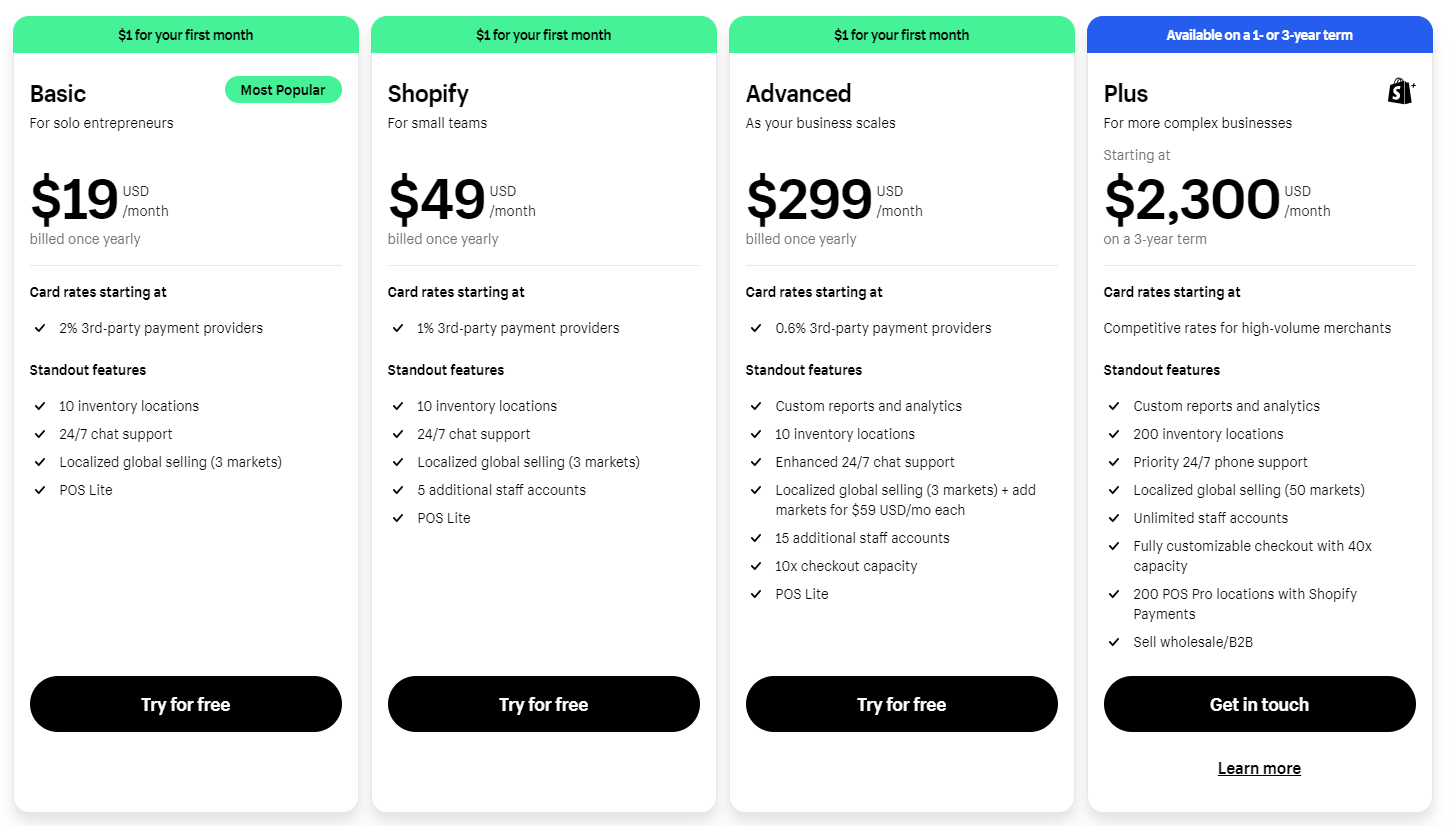
As a business owner, you have plenty on your plate. From managing employees to growing your customer base, the last thing you want is to spend hours poring over financial records and receipts. But here’s the thing – bookkeeping is essential to running a successful business. It provides valuable insights into your company’s finances, helps you make informed decisions, and ensures compliance with tax laws and regulations. So if you’re still wondering why bookkeeping matters for your business, keep reading! In this blog post, we’ll walk you through everything you need to know and share some expert tips on how to get started with your bookkeeping basics worksheet.
Why Is Bookkeeping Important for My Business
Bookkeeping is crucial for any business as it maintains accurate financial records. It provides essential insights into the company’s financial health, aiding in decision-making and strategic planning. Proper bookkeeping facilitates tax compliance, enables effective budgeting, and supports cash flow monitoring. It fosters transparency, enhances credibility, and simplifies audits, ultimately contributing to the overall success and growth of the business.
What are Some Bookkeeping Options for Small Business Owners?
Small business owners have several bookkeeping options, and the right one will depend on their unique needs. Some might prefer traditional pen-and-paper methods or spreadsheets, while others may opt for cloud-based software solutions that automate most of the work.
One popular option is hiring an in-house bookkeeper or outsourcing to a professional firm. This approach can be beneficial as it frees up time and ensures accuracy. However, it can also be costly for small businesses with limited budgets.
Another option is investing in accounting software such as QuickBooks or Xero, designed to streamline managing finances. These tools provide features like automatic data entry, real-time reporting, invoicing, and payment processing.
Some small business owners prefer hybrid solutions combining automated software and human support. This way, they get the best of both worlds – advanced technology and personalized service from professionals who understand their needs.
No matter what option you choose – remember that keeping accurate financial records is vital for long-term success!
What Are the Bookkeeping Basics?

Bookkeeping is an essential aspect of running a successful business. It allows you to manage your finances effectively and make informed decisions based on accurate data. You can identify areas where you need to cut costs or increase revenue by keeping track of your income and expenses.
Whether you choose to do the bookkeeping yourself or hire a professional, it’s crucial to understand the basics of bookkeeping. This includes recording all financial transactions accurately and consistently, creating financial reports regularly, reconciling accounts each month, and maintaining backups of all financial records.
By following these basic bookkeeping principles and using one of the various options available for small business owners regarding software or professional services, you will be well-equipped with the necessary tools needed for effective financial management, ultimately leading to success.
Bookkeeping basics worksheet include:
- Choosing your bookkeeping method
- Setting up your general ledger
- Creating your business accounts
- Recording every financial transaction
- Balance the books
- Preparing financial reports
- Creating a bookkeeping schedule and building the habit
- Store records securely
Step-by-step Bookkeeping Basics Worksheet:
Here is a brief overview of the steps involved in bookkeeping:
1. Choose your bookkeeping method
This is the first step on your bookkeeping basics worksheet. Choosing the right bookkeeping method is crucial for any small business owner. There are several methods to choose from, including cash and accrual accounting. Cash accounting records transactions when money is exchanged, while accrual accounting records transactions when they occur.
Before selecting a method, it’s important to understand your business needs and goals. Consider factors such as the size of your business, industry standards, and financial reporting requirements.
Once you have chosen your preferred method, set up a system that works best for you. This may include using spreadsheets or specialized software. Regardless of your chosen option, ensure that it aligns with your chosen bookkeeping method.
Next, create a chart of accounts that outlines all the categories in which financial transactions will be recorded. This includes assets, liabilities, income, and expenses.
When recording every financial transaction into your system, make sure to categorize each transaction correctly according to its respective account to maintain accurate records.
Finally, take out time regularly to create reports such as balance sheets or profit-and-loss statements showing how much revenue has been generated over specific periods of time by different sources within the company this can help identify trends or areas that need improvement in terms of spending or earning more revenue than usual.
Choosing an appropriate bookkeeping method helps keep track of finances accurately, making tax filing easier and helping businesses avoid costly mistakes.
2. Set up your general ledger
Next on your bookkeeping basics worksheet is setting up a general ledger. This is an important step in bookkeeping. A general ledger contains all of the transaction data for your business and helps you keep track of income and expenses. Here are some steps to set up your general ledger.
First, create a chart of accounts that lists all of the different types of transactions you expect to have. This will make it easier to categorize each transaction properly.
Next, enter the opening balances for each account based on your previous financial records or bank statements. Make sure these balances match what you currently have in your bank account or other financial accounts.
After entering opening balances, record all transactions, including deposits, bills paid, and other expenses. Be sure to include details such as date, amount, description, and category.
To ensure accuracy in recording transactions and categorizing them into respective accounts, refer to the chart of accounts created earlier.
Finally, remember that keeping a well-organized and updated general ledger with accurate information can help you stay on top of your finances by giving you insight into areas where costs may be reduced or improved upon while providing valuable information when making informed decisions about future investments for growth within your company.
3. Create your business accounts
Creating your business accounts is an important step in bookkeeping. It involves setting up separate accounts for each financial transaction your business makes. This will help you track where your money is coming from and going to.
To create your business accounts, start by identifying the different types of transactions within your business. This may include revenue, expenses, assets, liabilities, and equity. Then set up a separate account for each category.
It’s important to choose descriptive names for each account so that they are easy to understand and identify. For example, “Sales” can be used as the account’s name for revenue generated from sales.
Once you have created your accounts, you can begin recording financial transactions. This will allow you to easily track how much money is spent or earned in each category.
By keeping accurate records through creating detailed business accounts, you can make informed decisions about allocating resources within your company while ensuring compliance with tax laws and regulations.
Creating clear and concise business accounts is essential when managing finances effectively as a small business owner. Through careful consideration and organization at this stage, businesses can save time on their accounting processes while gaining valuable insights into their finances.
4. Record every financial transaction
Recording every financial transaction is an essential part of bookkeeping. This step involves keeping track of all incoming and outgoing funds in your business. It may seem daunting, but it can be done efficiently with the right tools and strategies.
To ensure accuracy in recording transactions, keeping receipts or invoices for every purchase or sale your business makes is important. You can also use accounting software to facilitate this process by automatically tracking expenses and income.
Once you have gathered all the necessary information, it’s time to enter them into your chosen bookkeeping system. This includes categorizing each entry according to its type (e.g., sales revenue or office supplies expense).
It’s important to note that errors at this stage could lead to bigger problems, such as incorrect financial reports or tax filings. Therefore, double-checking entries before finalizing them is crucial.
By recording every financial transaction accurately and consistently, small business owners can gain better visibility into their cash flow and make informed decisions about future investments or expenditures. So don’t skip this critical step in bookkeeping!
5. Balance the books
Balancing the books is an essential step in bookkeeping that ensures all financial transactions are accurately recorded. It involves comparing the total amount of money spent and received during a given period, ensuring they match up.
To balance your books, start by reviewing all accounts to ensure every transaction has been entered into the general ledger correctly. This includes checking for missing or duplicate entries and verifying bank statements against your records.
Next, categorize each transaction under its respective account type to help you organize data more efficiently and identify areas where you need to cut costs or increase revenue. Accounting software like QuickBooks or Xero can make this process easier.
Once all transactions have been categorized and verified, it’s time to reconcile them with your bank statements. Look out for discrepancies between what appears on your bookkeeping records and your bank statement.
Ensure everything is in order before preparing financial reports such as income statements and balance sheets. These reports will give you insights into how well your business performs financially, enabling you to make informed decisions about future investments.
Balancing the books may seem overwhelming initially, but it’s crucial for maintaining accurate financial records of your business operations. By following these steps carefully and regularly reconciling transactions with bank statements while using reliable accounting software like Quickbooks or Xero would ease things up for businesses regardless of their size.
6. Prepare financial reports
Preparing financial reports is an essential aspect of bookkeeping that helps business owners understand their financial standings. It involves compiling and analyzing various accounting data to create comprehensive reports that provide insights into the company’s finances.
To prepare financial reports, you must start by collecting all relevant financial data, such as income statements, balance sheets, and cash flow statements. These documents will help you track your revenue streams and expenses over a specific period.
Next, you should organize this information in a way that makes sense for your business operations. This may involve grouping transactions by category or department so that it is easy to see where money is spent and earned.
Once the data is organized, you can use accounting software or spreadsheet programs to generate custom reports tailored to your needs. These reports can be designed with different metrics in mind, such as profitability ratios or sales trends.
In addition to helping businesses gain insight into their finances, preparing regular financial reports also enables them to make informed decisions regarding investments, growth strategies, and cost-cutting measures. By providing up-to-date information about cash flows and other key performance indicators, these reports empower decision-makers with valuable insights they can use when making critical choices about how best to run their companies.
Preparing effective financial reports requires careful attention to detail and strong analytical skills but yields significant benefits for businesses looking to stay competitive in today’s fast-paced economy.
7. Create a bookkeeping schedule

A bookkeeping schedule is essential for business owners to track their financial transactions. The first step in creating a bookkeeping schedule is determining how frequently you need to update your records. This may depend on the size and complexity of your business and the volume of transactions.
Once you have determined how often to update your records, you must block out specific times in your calendar for this task. Setting reminders or alarms can be helpful so you don’t forget.
Next, consider whether specific times or days of the week work best for completing bookkeeping tasks. For example, some people prefer to do this kind of work early in the morning when they feel most focused and productive.
It’s also important to establish a routine for organizing receipts and other documentation related to financial transactions. You might choose to scan or take photos of these documents immediately upon receipt so that they can be easily accessed later on.
Make sure that you stick with your bookkeeping schedule consistently over time. By building this habit into your routine, you’ll ensure that your financial records are always up-to-date and accurate – which will help you make informed decisions about your business moving forward!
8. Store records securely
Finally, for you bookkeeping basics worksheet is finding a place to store your records securely. It ensures that all financial transactions are protected and can be accessed easily. As a small business owner, it’s essential to implement a system for storing your records securely.
One way to do this is using cloud-based software to store data remotely. This approach provides an added level of security as it protects against data loss due to physical damage or theft.
However, if you prefer keeping physical copies of your records, ensure they’re stored safely with limited access. Use locked cabinets or safes and limit the number of people accessing them.
It’s also crucial to create backups of all your files regularly. You can use external hard drives or cloud-based storage solutions like Dropbox or Google Drive. Remember always to test these backups periodically as well.
Another critical factor in securing your records is ensuring all passwords associated with accessing them are secure and changed regularly. Using two-factor authentication methods adds an extra layer of protection against potential hackers.
Make sure you dispose of any unnecessary documents appropriately through shredding before discarding them into a bin or recycling facility safely.
Taking measures towards securing your record-keeping system helps protect sensitive information from possible threats while also providing peace of mind, knowing the financial aspect of running the business has been taken care of responsibly.
Small Business Bookkeeping Mistakes to Avoid

Small business bookkeeping may seem straightforward, but there are common mistakes that can prove to be costly in the long run.
- One of the main errors small business owners make is mixing personal and business expenses. Having designated accounts and credit cards for your company is essential, making it easier to track expenses and avoid confusion.
- Another mistake is failing to maintain accurate records consistently. Recording transactions haphazardly or neglecting them altogether means lost revenue, incorrect income statements, and financial strain on your organization.
- Not reconciling bank statements regularly is another blunder commonly made by small businesses. Failure to reconcile could lead to overdrafts or bounced checks due to inaccuracies in reporting.
- Failing to back up data frequently leaves you vulnerable should a disaster occur. Back-up systems ensure critical information isn’t lost, especially during unexpected events like system crashes or power outages.
- Not seeking professional help ranks high among bookkeeping mistakes committed by small businesses. Ignoring issues until they become too significant results in more extensive problems later on – ones that can potentially cripple an otherwise thriving venture.
Frequently Asked Questions
As a small business owner, bookkeeping can be a daunting task. Knowing when to hire help is important and whether you can do it yourself is important.
1. When Should I Hire Help?
If your business is growing rapidly or you find yourself struggling with bookkeeping tasks, it may be time to consider hiring someone for help. A professional bookkeeper can take over these tasks and give you more time to focus on other aspects of your business.
2. Can I Do My Own Bookkeeping?
Yes, even as a small business owner, you can do your own bookkeeping with the right tools and knowledge. However, remember that doing so takes up valuable time that could be used for running your business.
3. Where Can I Hire Affordable Bookkeepers?
Many options are available online for affordable bookkeepers, such as Upwork or Freelancer.com, or even local accounting firms offering outsourced services at reasonable rates.
4. What Is the Best Bookkeeping Software?
The best software depends on individual needs, but some popular options include QuickBooks, Xero, and Freshbooks, which provide easy-to-use interfaces while maintaining detailed records of all financial transactions made by the company.
What Is EcomBalance?

EcomBalance is a monthly bookkeeping service specialized for eCommerce companies selling on Amazon, Shopify, eBay, Etsy, WooCommerce, & other eCommerce channels.
We take monthly bookkeeping off your plate and deliver your financial statements by the 15th or 20th of each month.
You’ll have your Profit and Loss Statement, Balance Sheet, and Cash Flow Statement ready for monthly analysis so you and your business partners can make better business decisions.
Interested in learning more? Schedule a call with our CEO, Nathan Hirsch.
And here are some free resources:
- Monthly Finance Meeting Agenda
- 9 Steps to Master Your Ecommerce Bookkeeping Checklist
- The Ultimate Guide on Finding an Ecommerce Virtual Bookkeeping Service
- 6 Reasons Accurate Ecommerce Accounting is Crucial for Your Business
- Accounting Basics 101: What Small Business Owners Must Know
- Generally Accepted Accounting Principles (GAAP) Cheat Sheet
- How to Read a Balance Sheet & Truly Understand It
Final Thoughts on Bookkeeping Basics Worksheet for Business Owners
Bookkeeping is an essential aspect of every business. It helps you keep track of your finances, make informed decisions, and ensure that your business stays financially healthy. Following the steps outlined in this guide and avoiding common mistakes, you can set up a solid bookkeeping system for your small business.
Remember that while it may seem daunting at first, keeping accurate records is crucial to the success of your venture. Whether you handle it yourself or hire a professional bookkeeper or accountant, committing to good record-keeping habits will pay off in the long run.
So take the time to set up your books properly and stay on top of them regularly—it’s one investment sure to yield significant returns! Start on your bookkeeping basics worksheet today.











